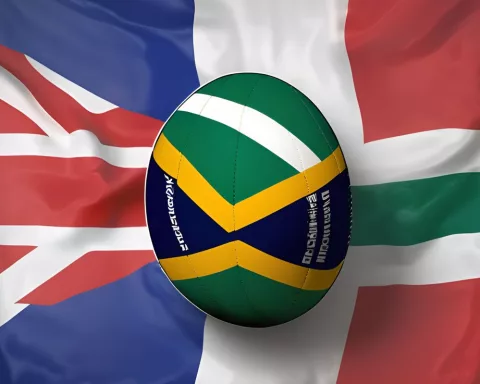Media24, a major media corporation in South Africa, plans to stop the production of four well-known newspapers, including City Press, Rapport, Beeld, and Daily Sun, from October 2024. The decision comes as print media faces challenges such as rising distribution costs, falling advertising revenue, and a shift in readers’ preferences towards digital news platforms. While Media24 has not confirmed if it will create distinct online brands for the newspapers, it follows a broader trend of declining newspaper and magazine circulation figures across South Africa and highlights the growing importance of digital news consumption.
Will Media24 cease the production of four newspapers in South Africa?
Yes, Media24 plans to cease the production of City Press, Rapport, Beeld, and Daily Sun, with the exception of Die Burger, located in Cape Town, due to increasing distribution expenses, decreasing advertisement revenue, and a shift in reader inclinations. The move is anticipated to commence from October 2024, marking the looming extinction of print media in South Africa.
Media24’s Decision to Cease Publication
The advanced vocabulary of print journalism is on the verge of dusk as Media24, a prominent media corporation in South Africa, is on the path to cease the production of four well-known newspapers – City Press, Rapport, Beeld, and Daily Sun. The move, anticipated to commence from October 2024, highlights the looming extinction of print media, an industry that has been wrestling with escalating distribution expenses, reducing advertisement revenue, and a shift in reader inclinations.
Esteemed reporter Jeremy Maggs, in his piece on Moneyweb, refers to sources within Media24 corroborating the organization’s decision. The only print publication to survive within the group, however, will be Die Burger, located in Cape Town.
The Challenges and Future of Media24
Media24 CEO, Ishmet Davidson, refrains from addressing conjectures or hearsay, concentrating on the company’s operational feasibility and long-term durability instead. He underscores that Media24 is committed to maintaining transparent communication with its staff regarding potential future strategies while progressing towards a digital media horizon. Nevertheless, Business Day reports Davidson dismissing the Moneyweb report as being “half-baked”.
Similar to many contemporaries in the print industry, Media24 is continually fighting financial setbacks, primarily triggered by spiraling distribution expenses and dwindling advertising revenue. Adding to these challenges is the gradual transition of readers to digital and online news platforms.
Whether Media24 will create distinct online brands for the newspapers on the brink of closure remains ambiguous. Currently, their content is consolidated on the News24 and Netwerk24 sites. Yet, the steep decline in circulation figures for these papers makes it an apparent choice in many ways to halt publication.
Analyzing the Decline
The diminishing figures paint a somber image. In 2000, the Rapport boasted a circulation number of approximately 335,000. Fast forward to the present, and it lingers around a scant 60,000, marking an astonishing 82% decline. City Press has observed an even more dramatic downfall, with its circulation dropping from 233,000 to a meager 14,000, a drop of 94%. Simultaneously, the daily newspaper Beeld has seen its circulation drop from over 100,000 to 20,000, a decrease of 80%.
This trend isn’t exclusive to Media24; newspapers and magazines across other media groups in South Africa are also experiencing similar pressures. The custom of leisurely flipping through a freshly printed newspaper over morning coffee is rapidly diminishing in the face of digital disruption. This shift signifies not only a change in news consumption format but also a transformation in the interaction between news providers and their audience.
The Future of News Consumption
As we observe these changes, it becomes increasingly evident that the sphere of print journalism is navigating unexplored territory. Intriguingly, these advancements also provoke questions about the destiny of news consumption, specifically how digital platforms can accommodate diverse reader demographics and maintain the depth and quality of reporting associated with their print versions.
In conclusion, the age-old saying “Get your newspapers – and magazines – while you still can” is swiftly becoming a nostalgic reminder of a period that is gradually disappearing into obscurity. The digital age is upon us, ushering in a new schema for news consumption. As we adapt to this transformation, let’s not forget the tactile joy of a broadsheet, the crinkle of pages, and the ink stains on our fingers – the trademarks of a once flourishing industry.
What newspapers will Media24 stop producing in South Africa?
Media24 plans to stop producing City Press, Rapport, Beeld, and Daily Sun newspapers from October 2024 due to rising distribution costs, falling advertising revenue, and a shift in readers’ preferences towards digital news platforms. The only print publication to survive within the group will be Die Burger, located in Cape Town.
What challenges is Media24 facing that led to the decision to stop producing newspapers?
Media24 is facing challenges such as rising distribution costs, falling advertising revenue, and a shift in readers’ preferences towards digital news platforms. These challenges have been impacting the print media industry in South Africa, leading to declining circulation figures and increasing financial setbacks.
Will Media24 create distinct online brands for the newspapers it is stopping production for?
It is unclear if Media24 will create distinct online brands for the newspapers it is stopping production for. Currently, their content is consolidated on the News24 and Netwerk24 sites.
What has been the decline in circulation figures for the newspapers that Media24 is stopping production for?
The newspapers that Media24 is stopping production for have experienced significant declines in circulation figures. For instance, the circulation of City Press has dropped from 233,000 to a meager 14,000, a drop of 94%. Similarly, Rapport’s circulation has declined from approximately 335,000 in 2000 to around 60,000 presently, marking an 82% decline.
Is the decline in circulation figures unique to Media24?
No, the trend of declining circulation figures is not exclusive to Media24. Other media groups in South Africa are also experiencing similar pressures due to the shift in readers’ preferences towards digital news platforms.
What is the future of news consumption in South Africa?
The future of news consumption in South Africa is largely digital, with readers increasingly shifting towards online news platforms. This shift is not only changing the format of news consumption but also transforming the interaction between news providers and their audience. As such, news providers must adapt to this transformation and find ways to accommodate diverse reader demographics while maintaining the depth and quality of reporting associated with print versions.











